In the framework of the series devoted to the journey to Tibet, we continue telling you about the most mysterious place on Earth. This release is dedicated to the celebration of Buddha's birthday in the city Gyanja.
Glanze, the next town on our journey is 90 kilometers away from Shigatse (towards Lhasa). Height over sea level of almost 4000 metres. Through Glanze is "friendship Road" connecting Lhasa and Kathmandu.
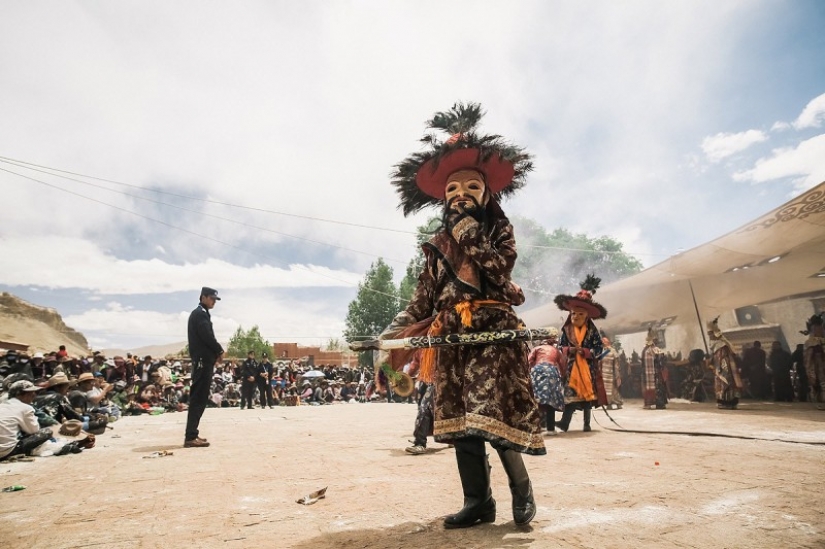
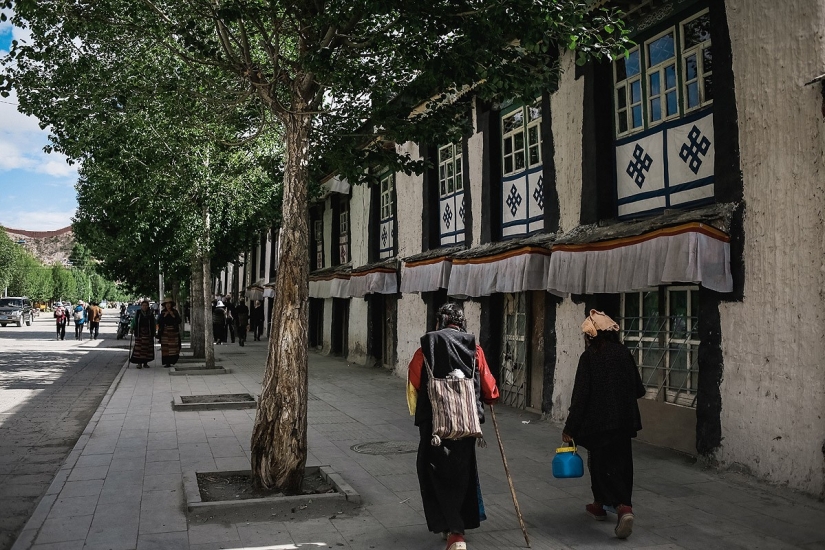
This is a small regional city with a relaxed way of life. This city can be called Tibetan.
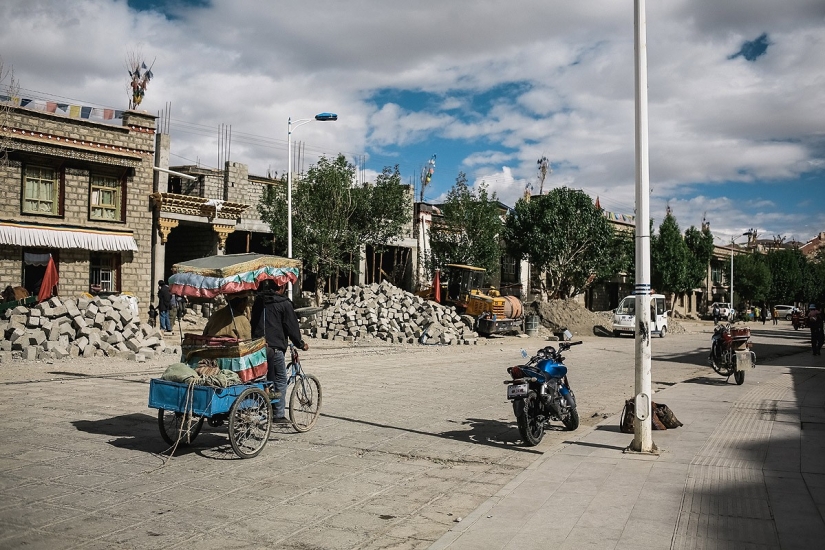
In Ganze, as elsewhere in Tibet, too, the Chinese people live. Their house can be quite easy to distinguish from those in which Tibetans live. On the roof of Tibetan houses is always the Tree of life (though in this area it looks more like a Bush or broom). In Chinese homes, there's nothing there.
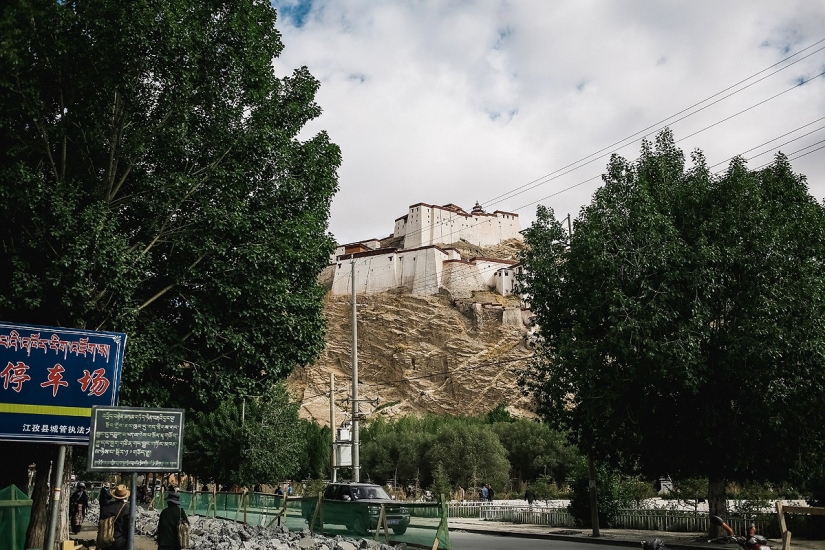
Here are just two attractions. First, the city's "Dzong" (fortress). In 1904, the defenders of the city heroically repulsed the attacks of superior numbers of British troops within 2 weeks and the fortress remained impregnable. A little reflection, we decided that is not going to "conquer" her, too steep slopes on which it is located.
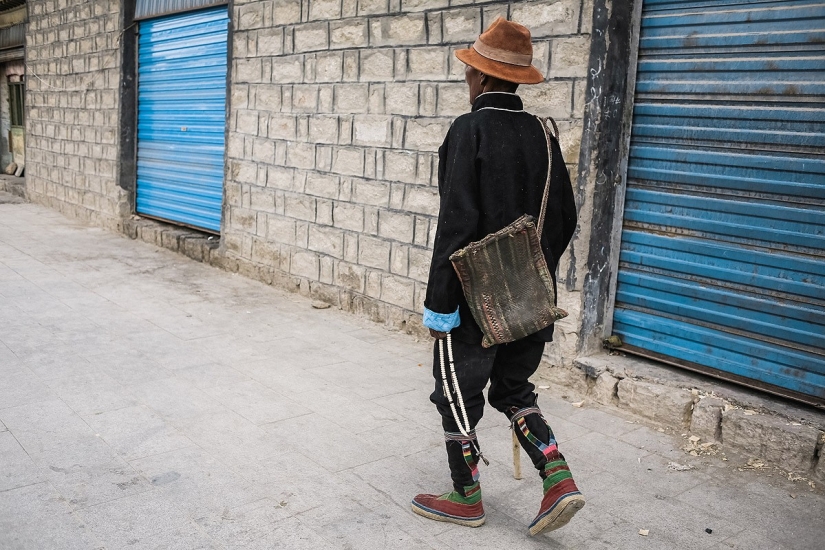
Instead, we went to another interesting place — the palkhor monastery of Code.
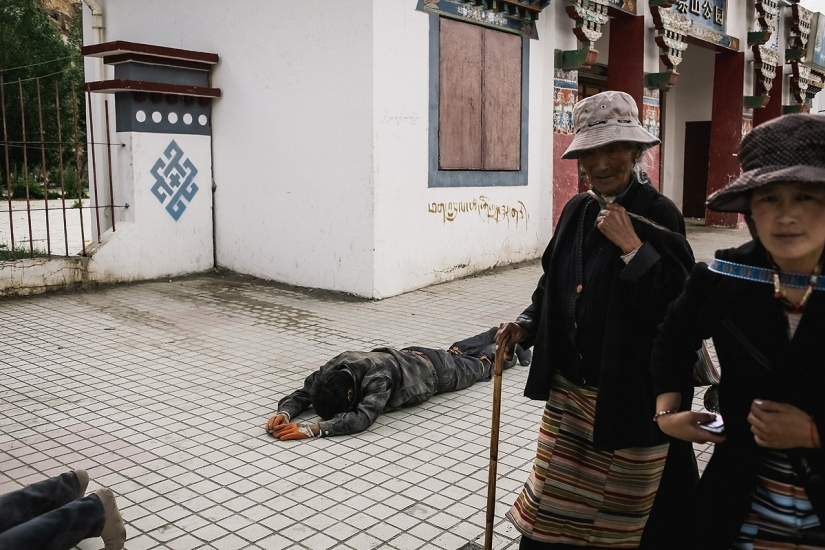
Download the road to the monastery was easy — there is already flocked by the locals in order to celebrate the holiday of Saga Dawa — the birthday of Shakyamuni Buddha.
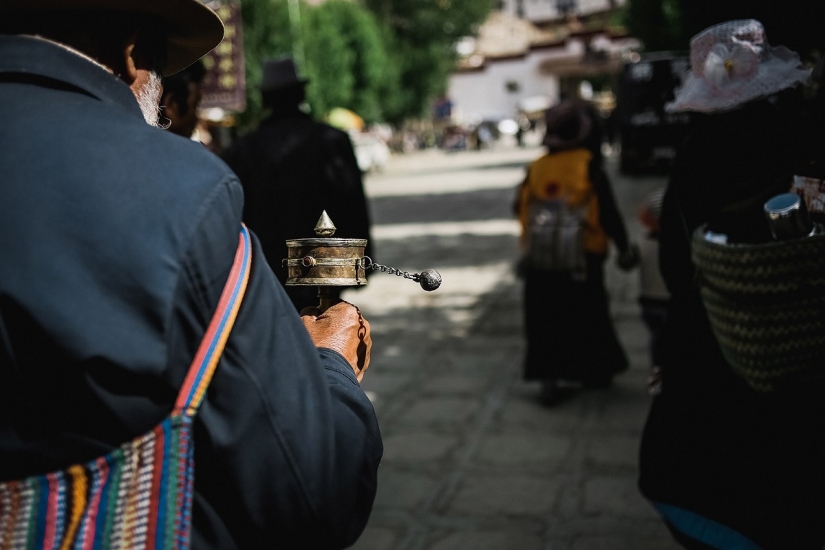
The Tibetans do not miss the opportunity in between to spin prayer wheel "Khor," which closed mantra. Rotate the drum clockwise you need to mantra moving in the right direction.
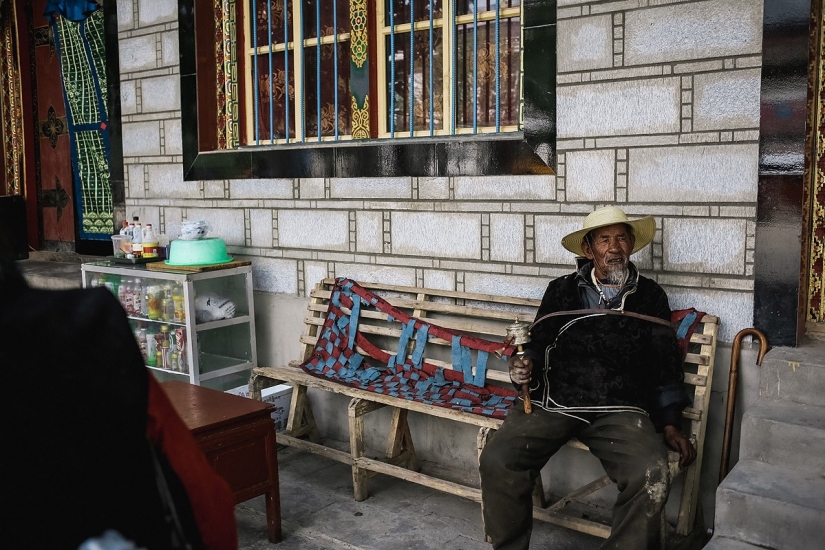
On the way to the monastery there are several shops where you can buy water, chips etc. Or just sit on a bench near the entrance.
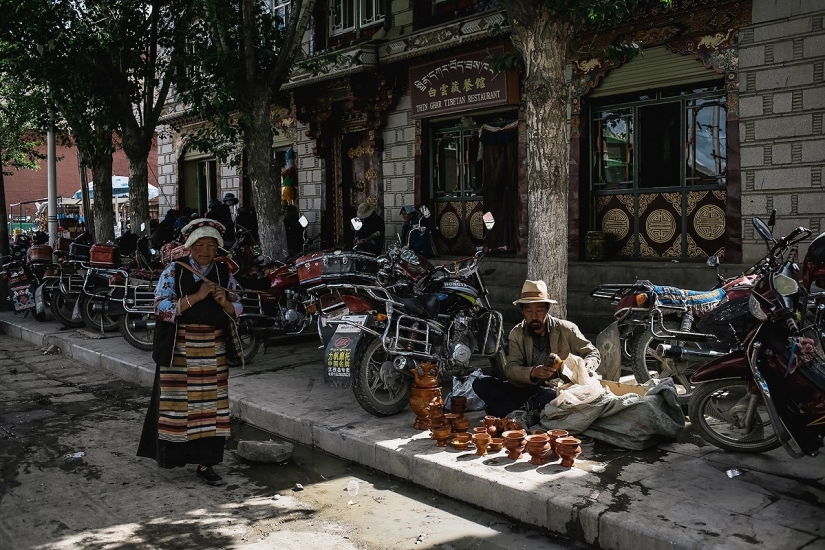
Trade is not only in the stores. Someone is selling their wares by the roadside.
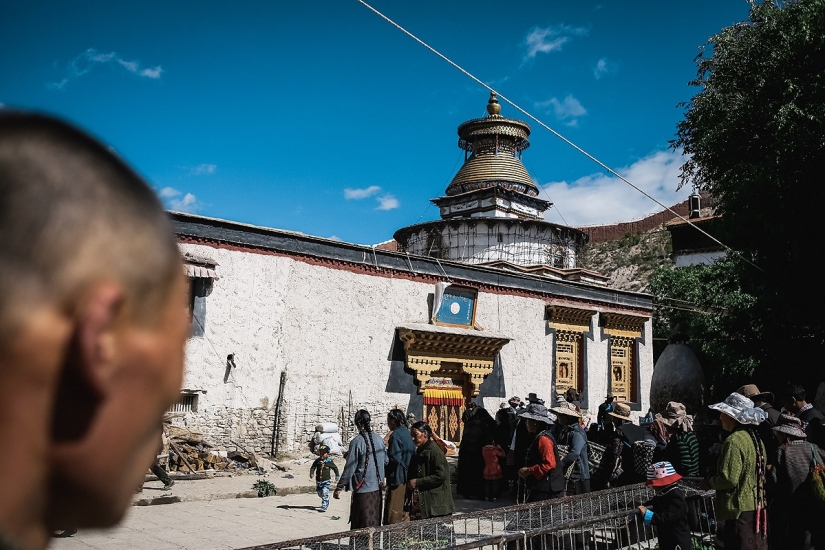
Finally we got to the monastery and along with the ubiquitous Tibetan grandmothers passed over the fence. I must say that Tibetan grandmother is very steep and should not stand in their way, especially in such momentous days.
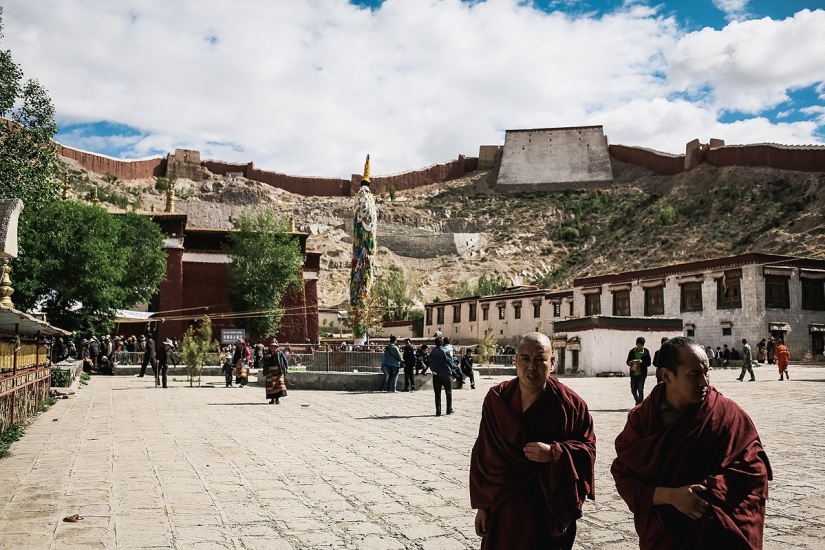
The monastery was founded in 1418 and now belongs to the Gelugpa school. Although it has and the building of the Sakya school. Today in the monastery lives about a hundred monks, and in the best of times there were up to three thousand.
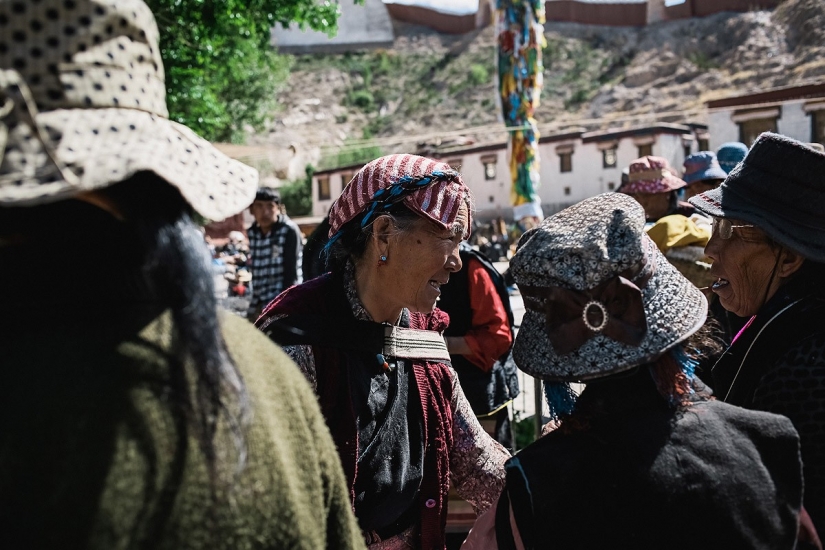
Despite the early morning, visitors had already quite a lot.
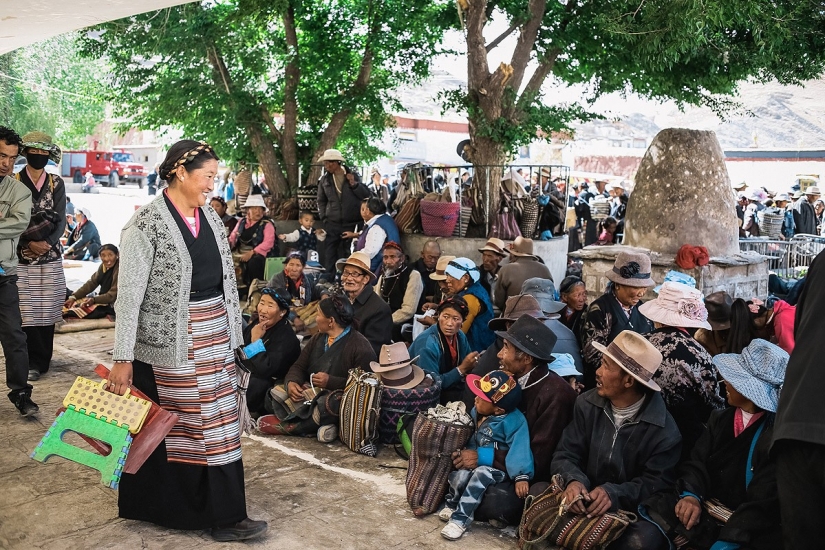
Although the major ceremonies of the feast was still a few hours in advance, the visitors tried to take the comfortable seats.
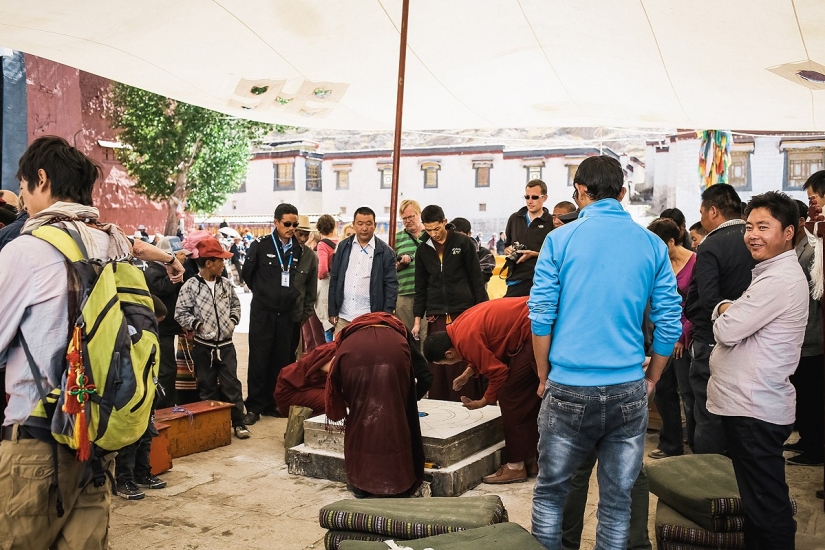
The Holy festival of Saga Dawa lasts a lunar month, but its peak falls on the full moon. We had to come to this city just after lunch, but decided to change the route to get to the celebration.
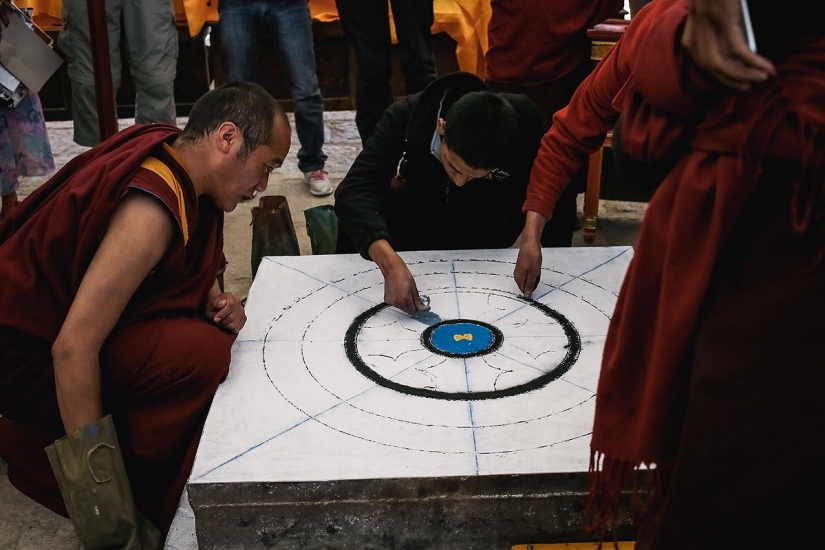
This day was to be held the dancing lamas and fire offering to the Buddhas. The monks had already prepared for him a special pedestal, pouring colored sand mandala.
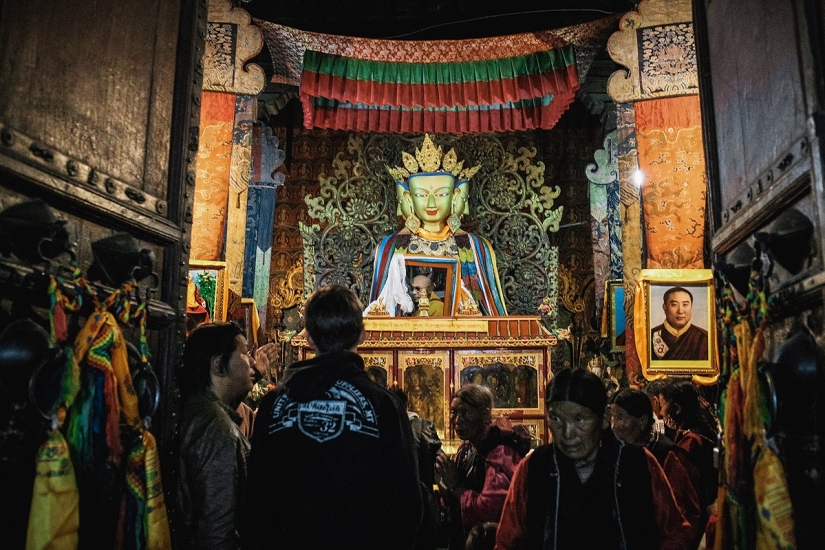
In order not to lose time, we decided to first explore the main temple, called Goman. All photos inside are made illegal because the cost per photo is very decent, and the money we had for food.
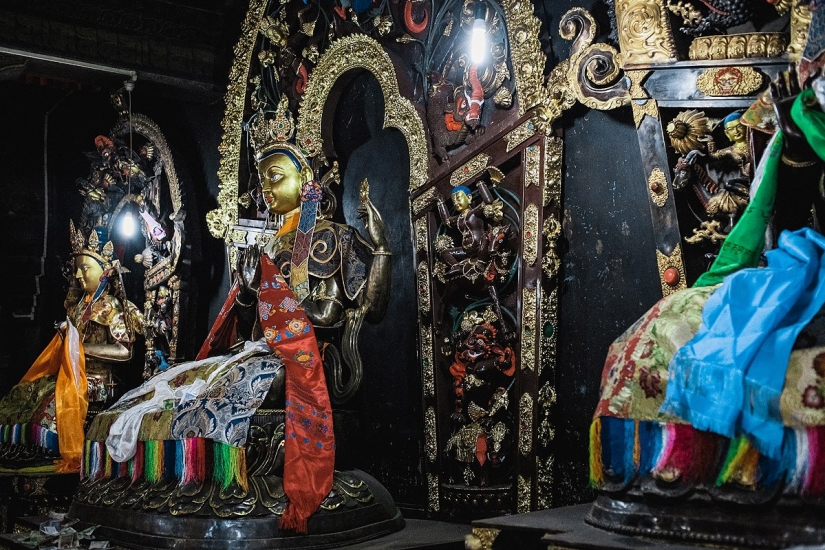
Inside is quite dark, but everywhere there are interesting statues and thangkas, and the walls are decorated with wonderful frescoes.
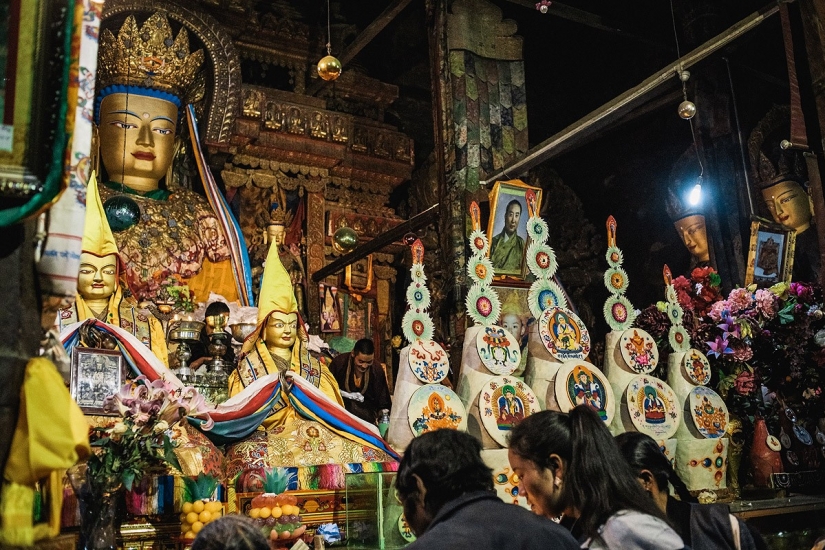
The Gelug school, sometimes called "galtasaray" because its founder, Lama Tsonkapa, the desire to go back to basics and decided that his followers would not wear red and green clothes and caps. This color wore robes of Buddha Shakyamuni. The same color hats can be seen on the statues of teachers in the school.
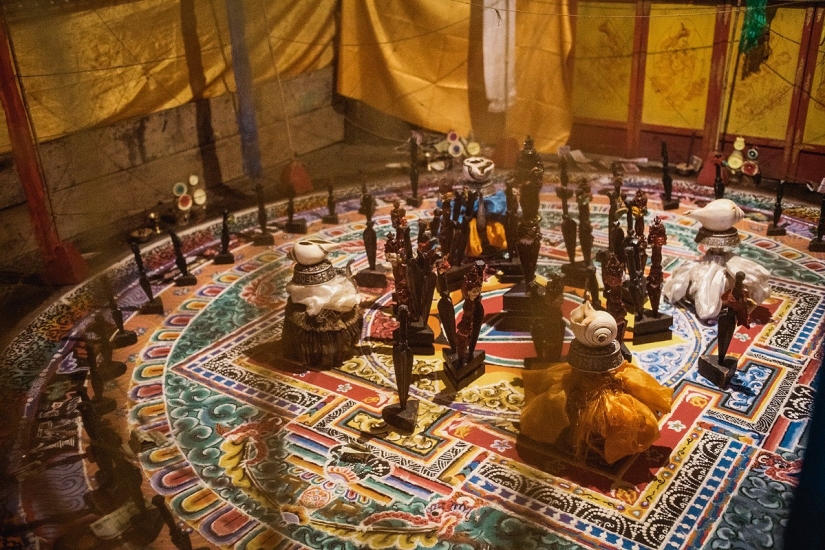
Mandala Vajrakilaya. The main attribute of this Buddha is a three-edged dagger kila (or "phurba" in Tibetan). With this dagger he cuts the main negative qualities — anger, attachment and ignorance.
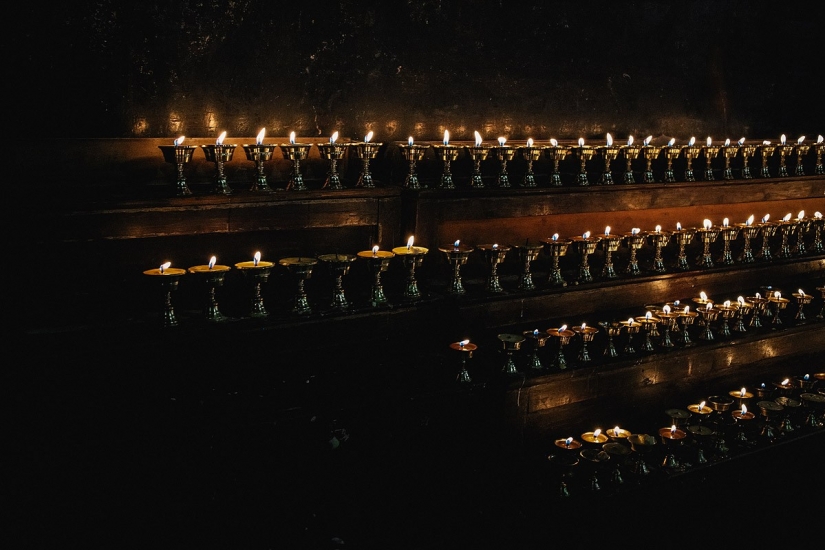
On the altars around the temple there are lamps, one of the favorite Tibetan offerings. They buy Yak butter in advance in the store or right at the entrance to the monastery, and then enclose it in lamps.
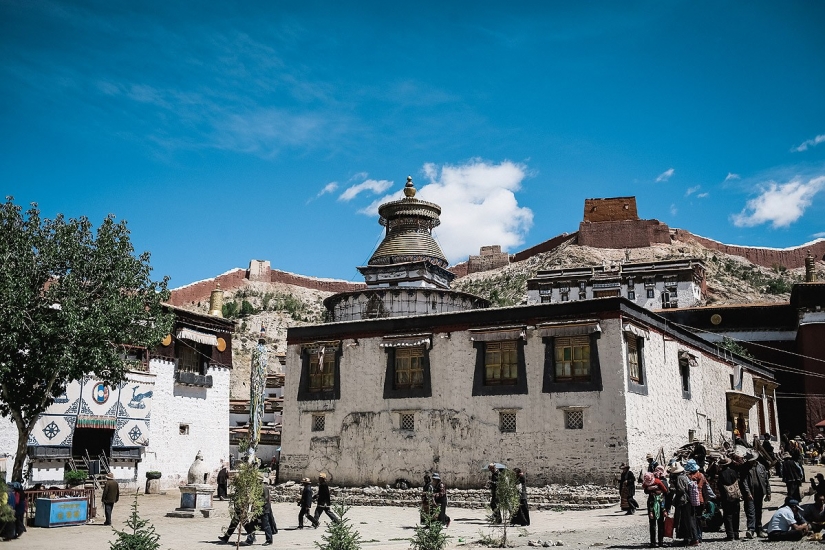
Around the main temple there are educational buildings, where young monks learn.
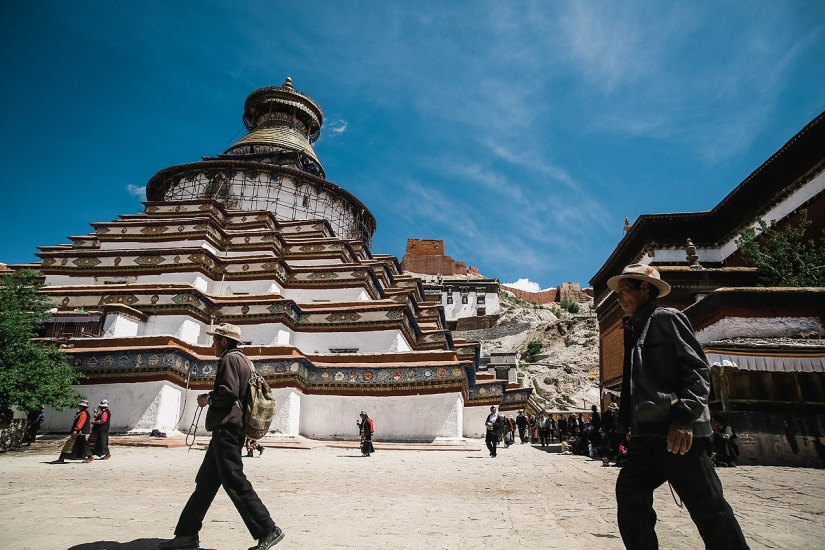
A real gem Glance and palkhor monastery of Code is the Kumbum stupa, or Stupa of a hundred thousand Buddhas. Its height is 32 meters. This stupa in the typical Nepalese style, embodying the basic elements of the universe: Earth, Water, Air, Fire, Space. On six floors of the stupa, 78 cells, a total of a hundred thousand images of Buddha — statues, tangka, of frescoes. The place is just fantastic. At the entrance to the stupa carefully check all bags and not allowed to carry cameras.
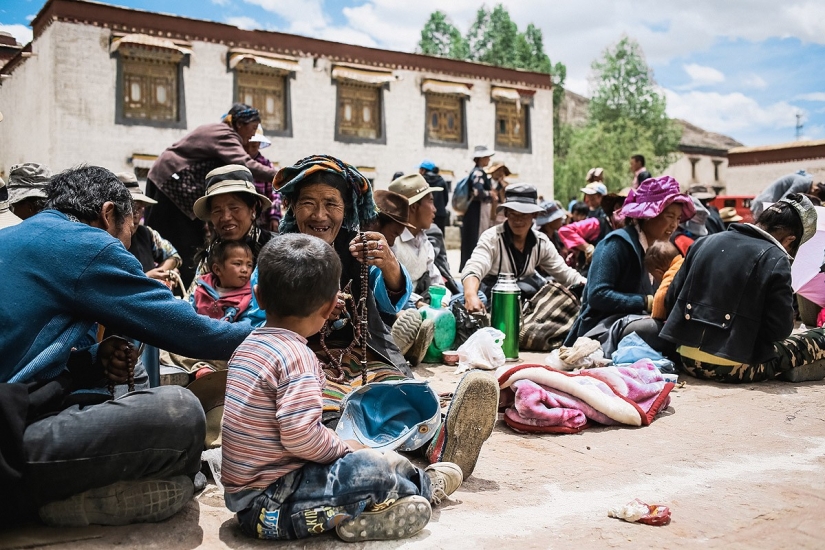
Meanwhile celebrations were about to begin.
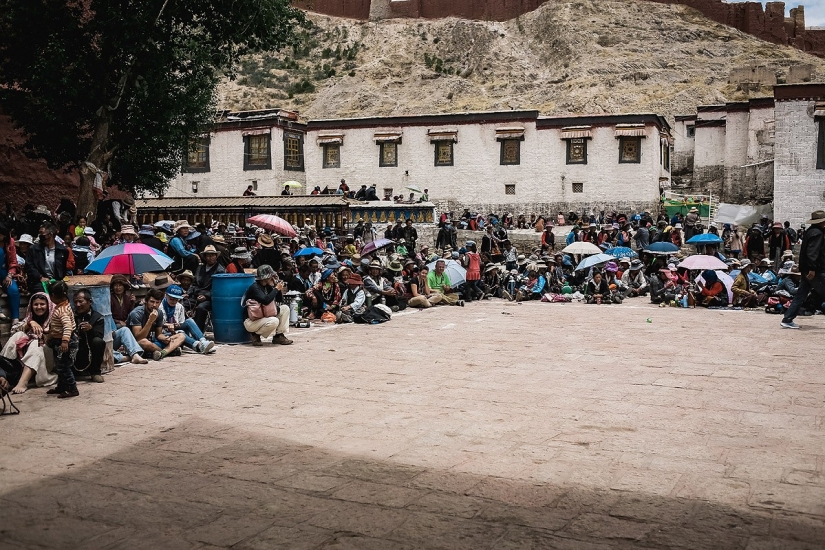
The audience took a comfortable seat on the ground.
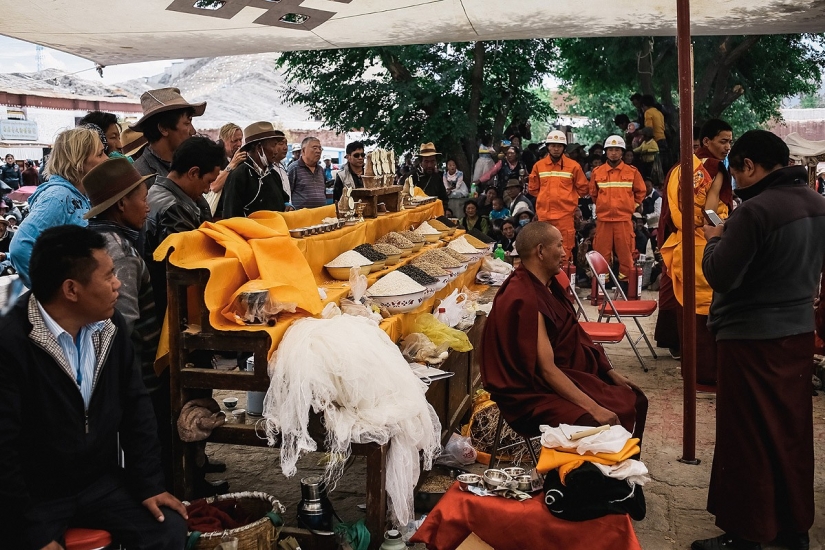
Offerings for the fire Puja is ready.
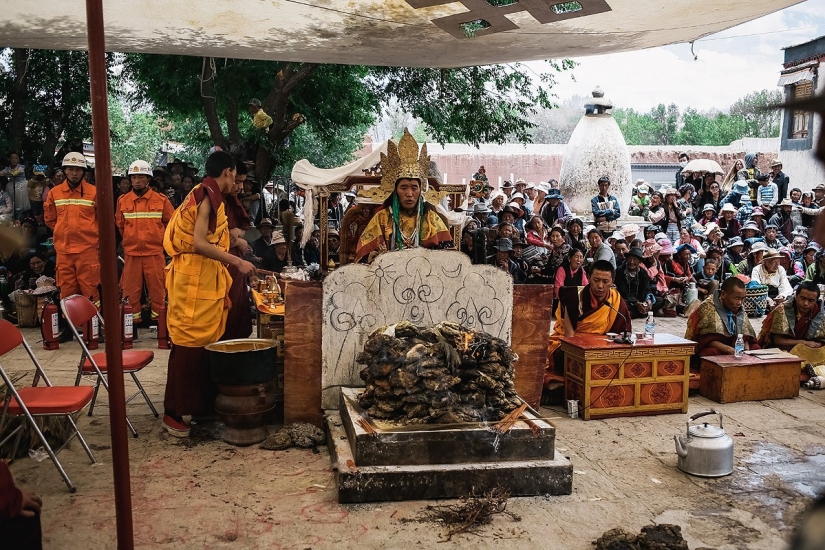
He began the ceremony.
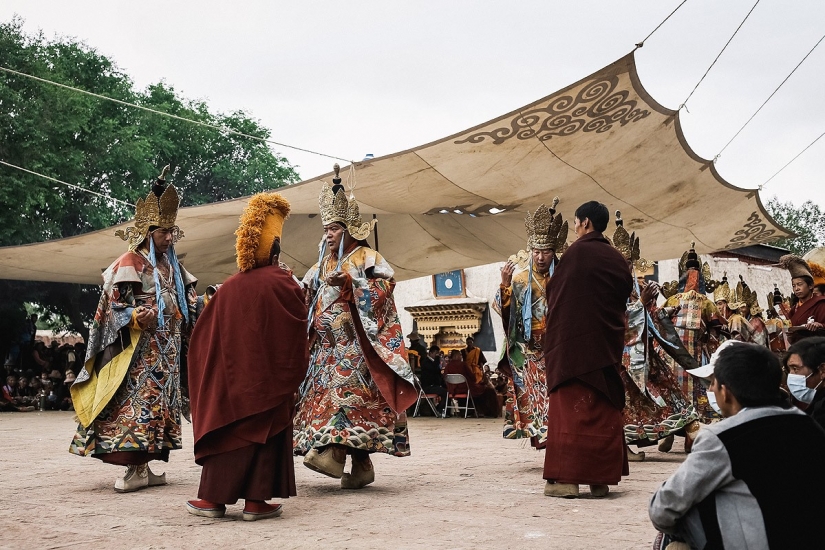
Went to the site the monks in crowns and colorful robes and lead the singing and the sound of drums and trumpets began to execute an intricate dance-a dance.
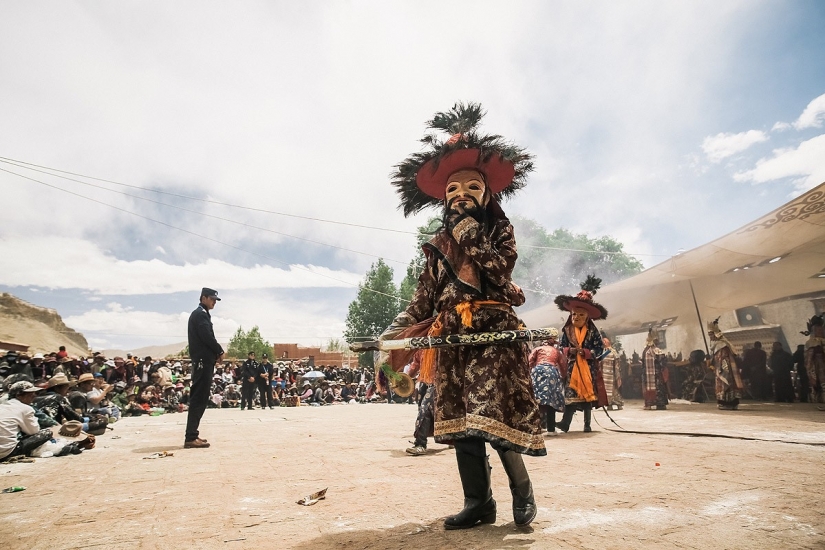
In between dances there were the monk, disguised as an evil spirit.
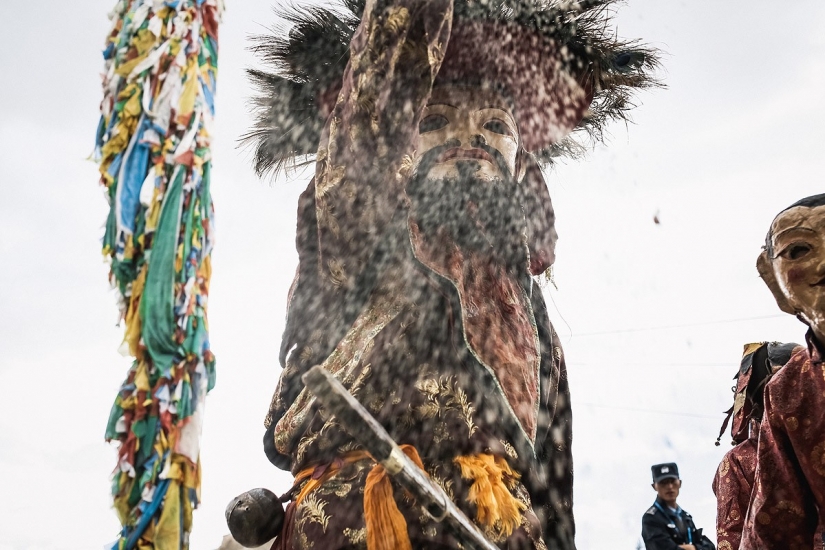
We didn't understand what he was going to do, and he took out of the bag of flour and began to sprinkle the people, we got full. All clothes, camera, backpacks were white.
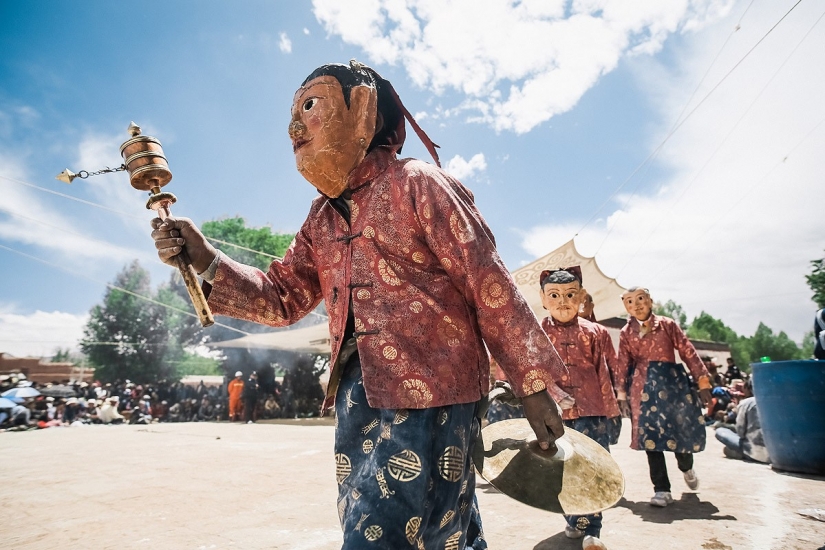
With him ran a few boys, monks, depicting the servants of harmful spirits.
Keywords: The Buddha | In search of magic | Birthday | Tibet
Recent articles

It's high time to admit that this whole hipster idea has gone too far. The concept has become so popular that even restaurants have ...

There is a perception that people only use 10% of their brain potential. But the heroes of our review, apparently, found a way to ...
Related articles

Today, 9 March, would have turned 87 years old our first cosmonaut Yuri Gagarin. We present images from his personal life to the ...

Let them eat cake! Whether it’s your birthday, your anniversary, or you simply survived a tough day, there’s never a bad time ...

On April 28, the famous Spanish actress and the main muse of Pedro Almodovar Penelope Cruz turns 39 years old. This year, a new ...

New Year's is a time to surprise and delight loved ones not only with gifts but also with a unique presentation of the holiday ...